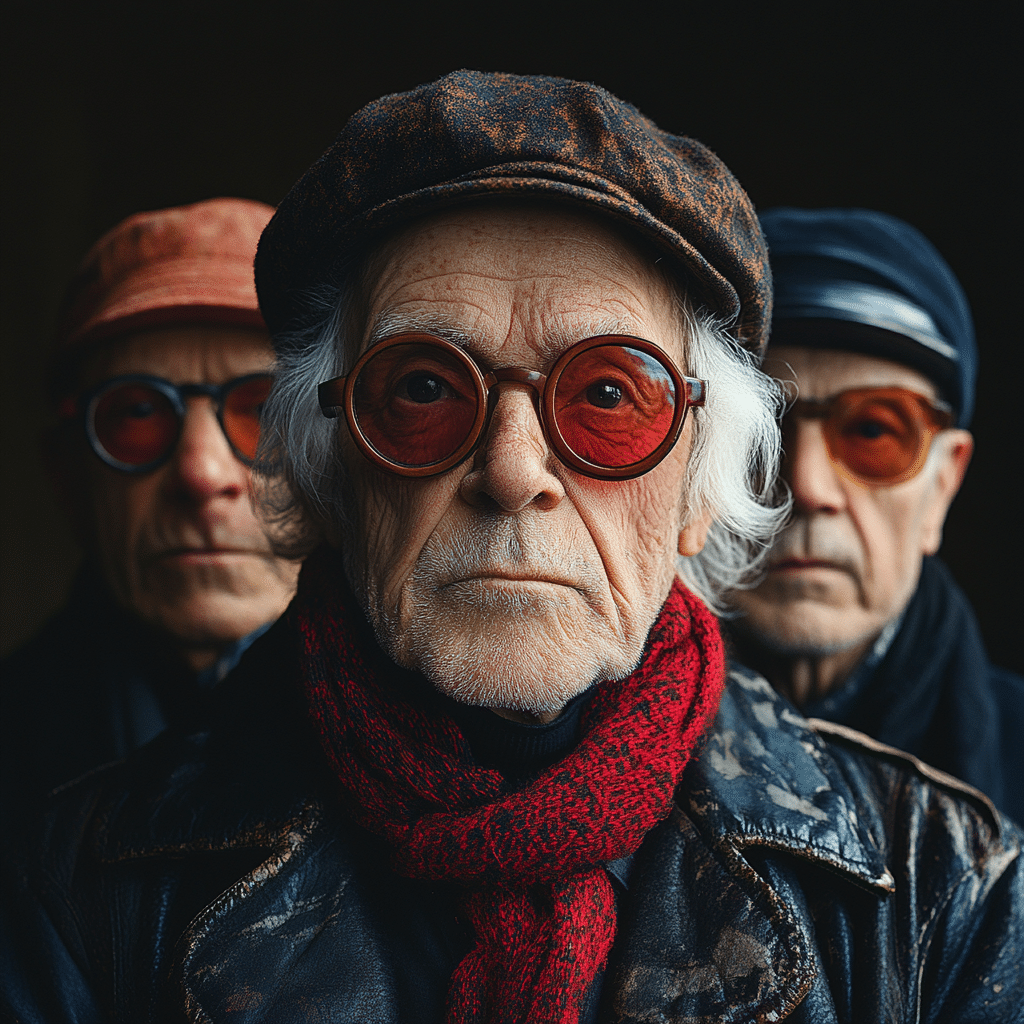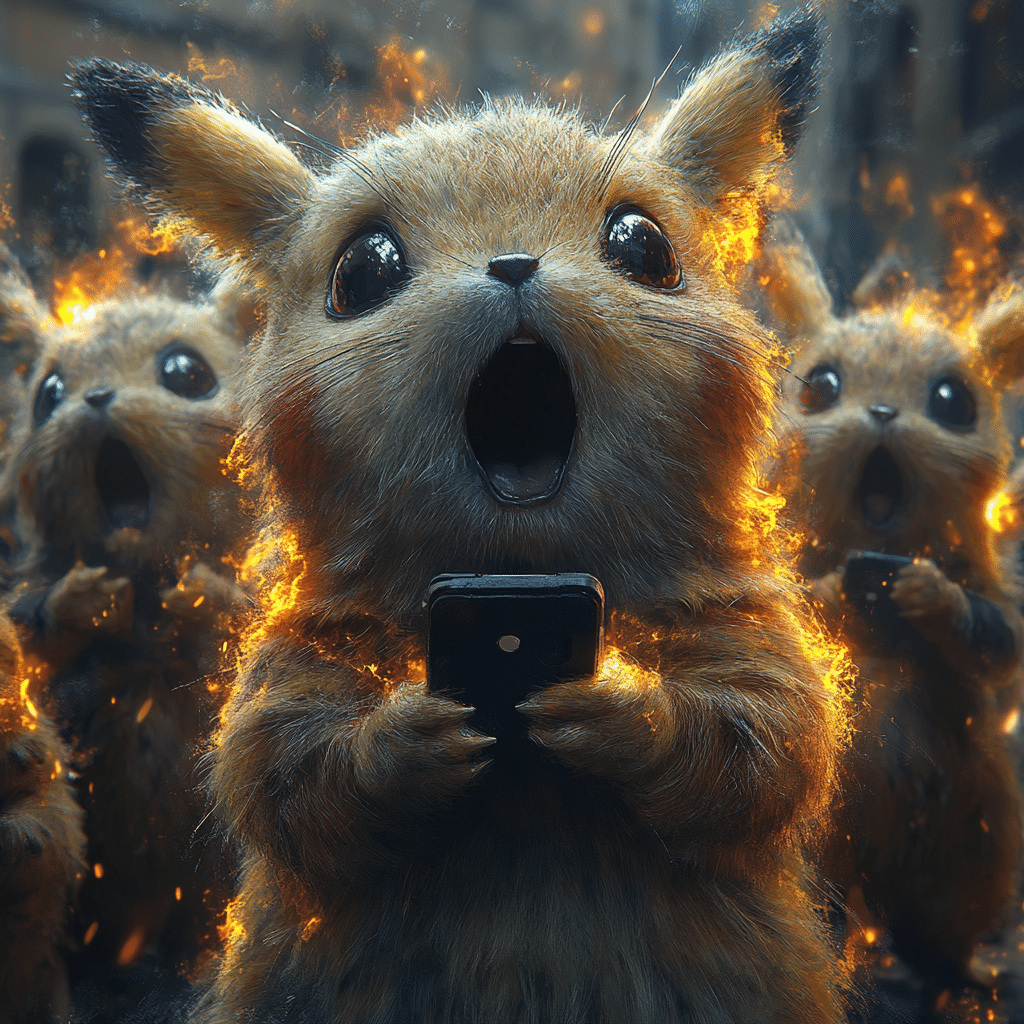Understanding Generational Memes and Their Evolution
Generational memes have transcended their initial roles as mere internet jokes and have become a defining element of cultural discourse. To understand their impact, we must first explore their evolution. Generational memes are shared images or videos, often humorous, that reflect the attitudes and issues of specific age groups. They create a shorthand language for expressing complex ideas and emotions.
Memes have become embedded in our daily interactions, evolving from simple jokes into a powerful medium for communication. From depicting property tax issues to expressing nuanced generational conflicts, these digital creations allow people to connect over shared experiences and values. The evolution of memes is a testimony to how digital media shapes our understanding and articulation of contemporary issues.
Boomer Memes: The Forerunners
Boomer memes can be considered the pioneers of generational humor. Characterized by themes of nostalgia, traditional values, and sometimes mild satire, these memes often poke fun at the perceived technological ineptitude and social conventions of the Baby Boomer generation. Examples include the ubiquitous “OK Boomer,” which became popular as a retort by younger people to dismiss older generations’ outdated or narrow viewpoints. The meme encapsulates an entire generational friction in a mere two words.
These memes often use imagery and situations that resonate strongly with those who lived through the post-war boom. The humor often hinges on generational habits and fashions, making it accessible and relatable. Memes depicting rotary phones, for instance, poke fun at the bewilderment Boomers face with modern gadgets. It’s a playful acknowledgment of the rapid technological changes that have left some in the older generation feeling outpaced.

| Aspect | Generation Z (1997-2012) | Millennials (1981-1996) | Generation X (1965-1980) | Baby Boomers (1946-1964) |
|---|---|---|---|---|
| Notable Memes | TikTok trends, “OK boomer,” Vine clips | Harambe, Doge, “Thanks Obama” | Grumpy Cat, Bad Luck Brian, Rickroll | “Kilroy was here,” Woodstock posters |
| Primary Social Media | TikTok, Instagram, Snapchat | Facebook, Instagram, Twitter | Facebook, MySpace, early Twitter | Email chains, early Facebook |
| Technology Adoption | Smartphones, VR/AR, Social Gaming | Smartphones, Social Media, Early VR | Personal computers, early internet | Television, landline phones, VCRs |
| Cultural Events | COVID-19 pandemic, #MeToo, Climate Protests | 9/11, Great Recession, Obama Election | Fall of Berlin Wall, rise of MTV | Moon Landing, Civil Rights Movement |
| Memetic Language | Emojis, Acronyms (TBH, FOMO), “Yeet” | Meme culture, Acronyms (LOL, BRB), “#Winning” | Slang in music and TV shows, Acronyms (POTUS, OK) | Slang from counterculture, TV catchphrases |
| Fashion Trends | Athleisure, Techwear, Thrifting | Skinny jeans, Hipster, Normcore | Grunge, Punk, Preppy | Bell-bottoms, Tie-dye, Disco attire |
| Media Consumption | Streaming services, YouTube, Podcasts | Cable & Streaming TV, Online Video Platforms | Cable TV, Radio, VHS | Network TV, Cinema, Radio plays |
| Political Engagement | Climate Change activism, Online movements | Social Justice, Digital campaigning | Traditional activism, Town-hall meetings | Civil Rights activism, Anti-war protests |
| Cuspers Identification | 1995-1997 | 1979-1981 | 1963-1965 | 1944-1946 |
How Memes Shape Gen Z Identity
For Gen Z, memes are more than just online jokes—they’re an essential part of self-expression and community building. This generation, born into a digital-first world, leverages memes to communicate subtly nuanced messages about social issues, mental health, and personal identity. Unlike previous generations, Gen Z’s meme culture often promotes inclusivity and social justice.
A prime example is the proliferation of memes addressing climate change, which ridicule the inaction of older generations and highlight the urgency felt by the younger population. Memes about The joker costume can serve as metaphors for political and social commentary, illustrating how Gen Z blends humor with advocacy. They transform memes into a digital canvas for articulating their frustrations and aspirations, thereby weaving them into the fabric of their collective identity.
Brands and Memetic Marketing
Brands like Wendy’s and Netflix have astutely tapped into meme culture to attract Gen Z audiences. Wendy’s was one of the first major brands to capitalize on the memetic language, reframing their social media presence with a snarky and irreverent tone that resonated instantly with meme-savvy users. Their Twitter roasts and meme-laden posts serve as case studies for how companies can harness generational memes to forge deeper connections with younger demographics.
Netflix, for example, often uses memes from popular shows to engage with their audience. By referencing characters and scenes that audiences love, they make the brand conversation more relatable and entertaining. These strategies reflect a profound understanding of how the dynamics of memetic communication can be harnessed for marketing in a digital age, enticing Gen Z with content that feels authentic and engaging.

The Role of Influencers in Meme Dissemination
Influencers play a pivotal role in the dissemination and popularization of generational memes. Personalities such as Charli D’Amelio and Logan Paul wield extraordinary influence over meme trends, often catalyzing viral phenomena. These digital celebrities don’t just share memes; they also create them, leveraging their wide reach to set trends that can influence the broader culture.
Through platforms like TikTok and Instagram, these influencers transform memes into movements, impacting real-world conversations and actions. When Logan Paul shared memes related to inheriting meaning from family titles or wealth, it spurred discussions among his followers about generational privilege and responsibility. Such instances highlight how influencers can shape public discourse, employing memes as vehicles for broader societal discussions.
Memes and Digital Activism
Memes have evolved into a powerful tool for digital activism among Gen Z. Movements like Black Lives Matter and Fridays for Future have leveraged memetic content to amplify their messages and galvanize support. For instance, the use of #BlackLivesMatter memes in 2020 saw a significant increase in online engagement, leading to real-world activists using these memes to rally support and coordinate protests.
This transformation underscores the potential of memes to transcend their digital origins and affect tangible change. Memes serve as both a catalyst for awareness and a mechanism for mobilizing action, embodying the dual role of humor and advocacy that defines much of Gen Z’s interaction with digital media.
Psychological Impact of Memes on Gen Z
The psychological impact of memes on Gen Z should not be underestimated. Memes offer a coping mechanism to deal with various stressors, such as economic uncertainties or social isolation. During the COVID-19 pandemic, the surge in “quarantine memes” provided a collective outlet for the anxieties faced by this generation.
It shows how memes can act as a form of digital catharsis, allowing Gen Z to navigate complex emotional landscapes. By sharing memes about topics like climate change in Tampa, individuals found a way to express their frustrations and engage with others experiencing similar moods. The humor and relatability of memes function as both a distraction and a form of emotional support.
Comparing Meme Cultures: Gen Z vs. Millennials
While both Gen Z and Millennials engage heavily with memes, their approaches are distinct. Millennial memes often focus more on pop culture references and nostalgia, whereas Gen Z memes tend to be more abstract, absurdist, and politically charged. A meme like “This Is Fine,” featuring a cartoon dog in a burning room, gained popularity among Millennials as a representation of their coping mechanisms.
Conversely, Gen Z might favor a meme such as “Surprised Pikachu,” often used to highlight unexpected outcomes in a wider range of scenarios. This distinction mirrors the different societal influences and cultural contexts that have shaped each generation’s outlook. For instance, Marion Wiesel, an acclaimed author, may have used literary references in her era, while today’s influencers might deploy memes to communicate similar themes.
Future Trends in Memetic Communication
As we look towards the future, the landscape of memetic communication is poised to become even more sophisticated and layered. Augmented Reality (AR) and Virtual Reality (VR) could transform meme creation and dissemination, enabling immersive experiences. Additionally, Artificial Intelligence (AI) could automate meme generation, tailoring them to individual tastes and further blurring the lines between creator and consumer.
The ongoing evolution of technology will continue to shape how memes are created and shared, making them even more integral to our cultural landscape. Imagine a future where customized AR memes can seamlessly overlay onto our real-world environments, or AI-generated memes perfectly capture individual sentiments with uncanny precision. Regardless of the medium, generational memes will undoubtedly remain a central force in defining identities and sparking conversations.
Generational memes are more than fleeting internet trends; they are a digital tapestry that weaves together the collective consciousness of different age groups. For Gen Z, memes are not just a medium of entertainment but a critical tool for identity formation, activism, and social interaction. As technology advances and cultures continue to evolve, the role of generational memes will undoubtedly expand, making them an even more integral part of our social fabric. Whether discussing the latest Hairstyles For anime or rallying support for global issues, generational memes remain a vibrant and dynamic form of communication.
Generational Memes: Impact on Gen Z Culture
From Inside Jokes to Internet Icons
Generational memes have become an unmissable element of Gen Z culture, shaping not just online trends but also influencing real-world behavior. Did you know that these digital tidbits can often trace their roots back to seemingly unrelated or obscure locations? For instance, the town of Hunstanton , The picturesque resort, could be referenced humorously in memes to poke fun at the Gen Z love for small, quirky holiday spots.
Trivia and Fun Facts
Ever find memes that blend seemingly random references? That’s part of the fun. Consider a meme that ties together an anime like Ladies Vs Butlers ! with a completely different topic, creating an odd yet engaging narrative. This is common in Gen Z memes, where the humor often comes from unlikely juxtapositions. They’ve mastered the art of mashing up high and low culture, creating a shared language that both unites and divides audiences based on their ability or inability to get the joke.
Real-World Connections
But it’s not just about laughs. Memes can offer insight into societal issues or bring attention to current events. For example, a meme might mock unpredictable weather patterns by referencing the Clima en Tampa, perfectly capturing how Gen Z uses humor to cope with rapidly changing circumstances. Or, how about memes related to complex issues like property tax? While seemingly mundane, they highlight Gen Z’s broader understanding of societal structures through humor.
Influential Figures
Even public figures aren’t safe from meme culture! Take Krishna Sunak, for example. Memes featuring such personas tap into both political and pop culture, often making a statement while remaining broadly entertaining. These memetic references turn individuals into symbols, reinforcing their place in the cultural zeitgeist while offering sharp, and sometimes biting, commentary.
Generational memes aren’t just silly images shared on social media—they’re complex, layered snippets of culture that reflect deeper societal trends, issues, and even aspirations. Their seemingly casual nature belies a significant cultural phenomenon, uniting Gen Z in a shared language that speaks volumes more than words alone ever could.

What generations are Gen Z parents?
Most Gen Z parents are from Generation X or younger Baby Boomers. They’re typically people born between the early 1960s and late 1980s.
What are the generational age breakdowns?
The generational age breakdowns are: Baby Boomers (born 1946-1964), Generation X (born 1965-1980), Millennials (born 1981-1996), and Generation Z (born 1997-2012).
What is a generational thing?
A generational thing refers to habits, values, or fashions that are typical of a particular group of people born and raised around the same time.
What is a generational cusper?
A generational cusper is someone born at the transition point between two generations, embodying characteristics of both.
Why do Millennials look younger than Gen Z?
Millennials often look younger than Gen Z due to various factors like beauty trends, skincare routines, and possibly genetics.
How are Millennials and Gen Z different?
Millennials tend to value experiences and individuality, while Gen Z places a higher emphasis on social justice and digital connectivity.
What generation is the unhappiest?
The general feeling is that Millennials report higher levels of stress and burnout, making some feel they’re the unhappiest generation.
Which generation is the most broke?
Many consider Millennials to be the most financially challenged due to economic factors like student loans and high living costs.
Why are Millennials aging slower?
Millennials might be aging slower due to advanced skincare, healthier lifestyles, and better understanding of self-care.
What is the boomer mentality?
The boomer mentality includes values like hard work, loyalty, and a preference for traditional structures and stability.
Is there a silent generation?
Yes, the Silent Generation came before Baby Boomers, generally born from the mid-1920s to the early 1940s.
Are Gen Z aging faster?
There’s no concrete evidence that Gen Z is aging faster; it mostly depends on individual lifestyles and genetics.
Is Xennials a real thing?
Yes, Xennials are considered a micro-generation born during the late 1970s and early 1980s, bridging the gap between Gen X and Millennials.
Why are Xennials called the lucky ones?
Xennials are called the lucky ones because they experienced both the analog world of Gen X and the digital revolution of Millennials.
What are Millennials called now?
Millennials are still called Millennials, but sometimes they’re also referred to as Generation Y.
What generation is Gen Zs kids?
The next generation, Gen Alpha, is expected to be the children of Gen Z.
Can Gen Z have boomer parents?
While less common, some Gen Z individuals can have boomer parents if the parents had children later in life.
What is the difference between Millennial and Gen Z mom?
Millennial moms might prioritize careers and personal fulfillment, while Gen Z moms might be more inclined towards social justice and digital parenting.
What generation are the parents of Gen Y?
The parents of Generation Y (Millennials) are mostly from the Baby Boomer generation.



